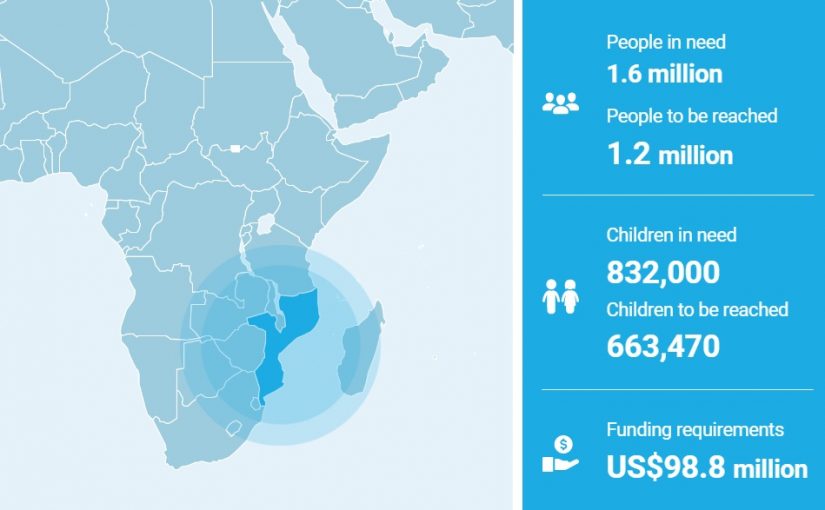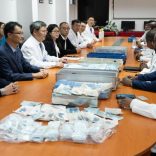Mozambique: RUSI and Embassy of the Kingdom of Norway in Maputo present OCTA project findings
UNICEF fails to secure funding for its work in Mozambique – AIM report

UNICEF’s 2022 HAC appeal requests nearly $98.8 million to address critical humanitarian needs nationwide including displacement, malnutrition, public health emergencies, malnutrition, cyclone response and preparedness activities. [Image: UNICEF]
The United Nations Children’s Fund (UNICEF) lamented in its latest situation report that, during 2021, it had to cope with a shortfall of just under 56 million US dollars for its life-saving and life-sustaining work with children and their caregivers in Mozambique.
Last year the organisation appealed for 96.5 million dollars for its work with a particular emphasis on the northern province of Cabo Delgado where islamist terrorists forced around three quarters of a million people to flee their homes – 59 per cent of whom were children.
UNICEF notes that “an important development in the Cabo Delgado crisis was the arrival of Rwandan and Southern Africa Development Community (SADC) security forces which enabled the government to reoccupy locations that had been inaccessible for months or years”. It added that troops conducted clearance operations and regained substantial swathes of territory but warned that “insurgents continue to carry out attacks on civilians”.
UNICEF also notes that food insecurity conditions are prevalent across the country. It expects that between November 2021 and March 2022 about 1.9 million people will be in “high levels of acute food insecurity and in need of humanitarian assistance”. It explains that the major causes of the food insecurity include armed conflict in Cabo Delgado, irregular rainfall, increasing food prices, and COVID-19 restriction measures.
Despite these alarmingly high needs, in 2021 UNICEF only received 27.5 million dollars in funds from its donors which, along with a 13.3 million dollar carry-forward, left a 58 per cent funding gap. As a result, it only received 16 per cent of the funds needed for its education work in Mozambique, 32 per cent of funds for child protection, and 38 per cent for social protection.
UNICEF thanked the governments of Canada, Italy, Japan, Norway, Sweden, United Kingdom, and the United States, along with the Directorate-General for European Civil Protection and Humanitarian Aid Operations (ECHO), Education Cannot Wait, the Global Vaccine Alliance, the Japan National Committee for UNICEF, and the UN’s Central Emergency Response Fund for their donations. “Without them we would be unable to support the children of Mozambique”, it added.
- You may read the full document “UNICEF Mozambique Humanitarian Situation Report No. 11 (Reporting Period: January-December 2021) HERE.












Leave a Reply
Be the First to Comment!
You must be logged in to post a comment.
You must be logged in to post a comment.